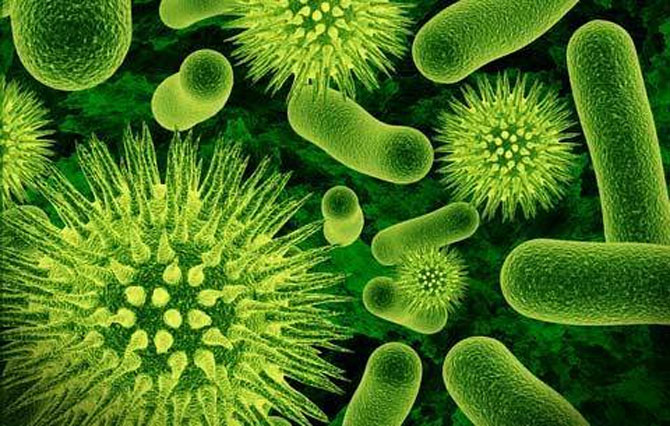Your Personal Microbes Can Single You Out

The bustling communities of microbes in and on your body are unique to you — so much so that they might be used to identify you from a crowd of hundreds of other people, a new study suggests.
Researchers analyzed information from more than 200 people who had samples taken from their stool, saliva, skin and other body sites, as part of a study on the human microbiome. Using a computer program, the researchers then created "codes" based on the species of the bacteria and other microbes found on a specific person, as well as the genes of those microbes.
They found that using these codes, they were able to distinguish most of the people in the study from hundreds of others. In addition, when the researchers looked at samples collected from the same people between one month and one year later, about 30 percent of the people could still be identified from their initial codes.
The codes based on the microbes living in people's guts were particularly stable — about 80 percent of people could still be identified based on their gut microbes up to a year later. [5 Surprising Facts About Your Microbiome]
Researchers have been able to identify people based on their DNA for decades, by linking a sample of a person's DNA to one in a database of DNA "fingerprints." But the new study shows that "the same sort of linking is possible using DNA sequences from microbes inhabiting the human body — no human DNA required," study co-author Eric Franzosa, a research fellow in biostatistics at the Harvard School of Public Health in Boston, said in a statement.
The study is exciting because it "suggests our unique microbial residents are tuned to the environment of our body — our genetics, diet and developmental history — in such a way that they stick with us and help to fend off less friendly microbial invaders over time," said study co-author Curtis Huttenhower, an associate professor of computational biology and bioinformatics, also at Harvard.
But the findings also have implications for the privacy of research subjects, because they show that samples from different body sites can be linked to individuals without the need for other information.
Get the world’s most fascinating discoveries delivered straight to your inbox.
The finding "opens the door to connecting human microbiome samples between databases, which has the potential to expose sensitive subject information — for example, a sexually transmitted infection, detectable from the microbiome sample itself," Franzosa said.
The researchers note that the microbial codes aren't as good as human DNA fingerprints in terms of identifying individuals — the chance of getting a false match is higher with microbial-based codes than it is with DNA. But it's possible that as technology advances, the ability of microbial information to identify individuals will increase, the researchers said.
The study is published today (May 11) in the journal Proceedings of the National Academy of Sciences.
Follow Rachael Rettner @RachaelRettner. Follow Live Science @livescience, Facebook & Google+. Original article on Live Science.

Rachael is a Live Science contributor, and was a former channel editor and senior writer for Live Science between 2010 and 2022. She has a master's degree in journalism from New York University's Science, Health and Environmental Reporting Program. She also holds a B.S. in molecular biology and an M.S. in biology from the University of California, San Diego. Her work has appeared in Scienceline, The Washington Post and Scientific American.


